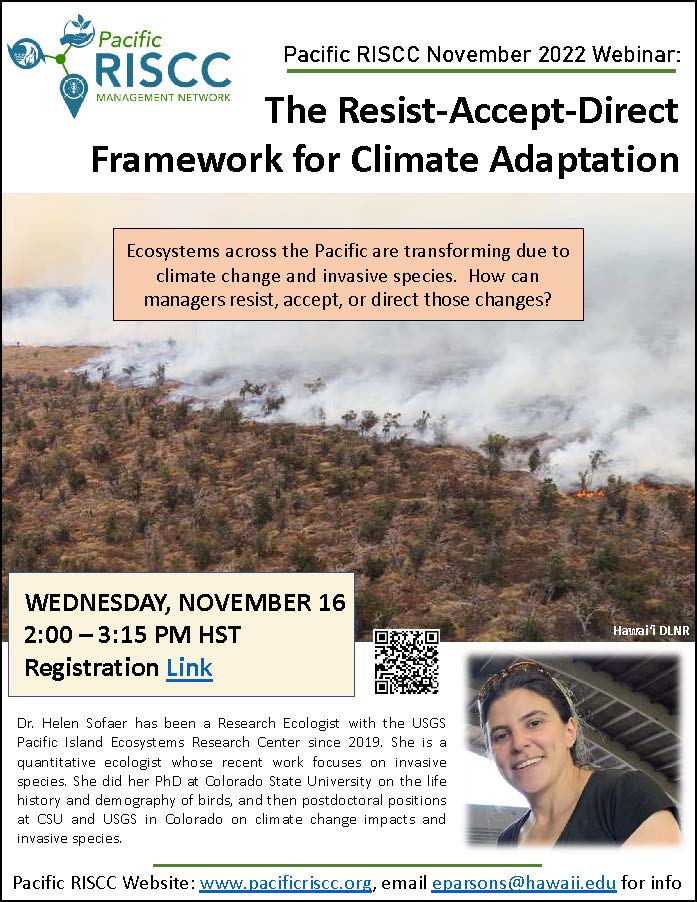THE RESIST-ACCEPT-DIRECT FRAMEWORK FOR CLIMATE ADAPTATION
American Sāmoa | Wednesday, November 16 from 1:00-2:15 p.m.Hawaiʻi |Wednesday, November 16 from 2:00-3:15 p.m.Palau | Thursday, November 17 from 9:00-10:15 a.m.CNMI & Guam | Thursday, November 17 from 10:00-11:15 a.m.FSM | Thursday, November 17 from 10:00-11:15 a.m. (Weno) / 11:00 am-12:15 p.m. (Palikir)RMI | Thursday, November 17 from 12:00 – 1:15 p.m.
A Pacific RISCC Webinar via Zoom
Webinar overview:

The next Pacific RISCC Webinar, “The Resist-Accept-Direct Framework for Climate Adaptation”, will feature Dr. Helen Sofaer, research ecologist with the USGS Pacific Island Ecosystems Research Center.
Speaker details:
Dr. Helen Sofaer has been a Research Ecologist with the USGS Pacific Island Ecosystems Research Center since 2019. She is a quantitative ecologist whose recent work focuses on invasive species. She did her PhD at Colorado State University on the life history and demography of birds, and then postdoctoral positions at CSU and USGS in Colorado on climate change impacts and invasive species.
Presentation abstract:
Ecosystems are transforming due to climate change and invasive species, and many management goals are increasingly difficult to attain. The Resist-Accept-Direct framework presents three distinct choices a manager may make in response to ongoing and anticipated ecological changes.
Resistance strategies work to maintain or restore ecological composition, structure, or function based on historical or current conditions. To accept change is to allow these to change autonomously, and to direct change is to actively shape a system towards preferred new conditions. Resource management agencies have typically allocated effort towards resistance, often implicitly accepting change in lower priority areas due to limited resources. Directing change is based on human values, and although it is something many indigenous cultures have long embraced, it can be outside the institutional norms of conservation-focused management agencies.
The RAD framework provides a simple organizational structure for the decisions people are already making, and I will provide examples of RAD decisions in Hawaiʻi and how this framework can help guide decision-making in our era of global change.
Seminar Recording

